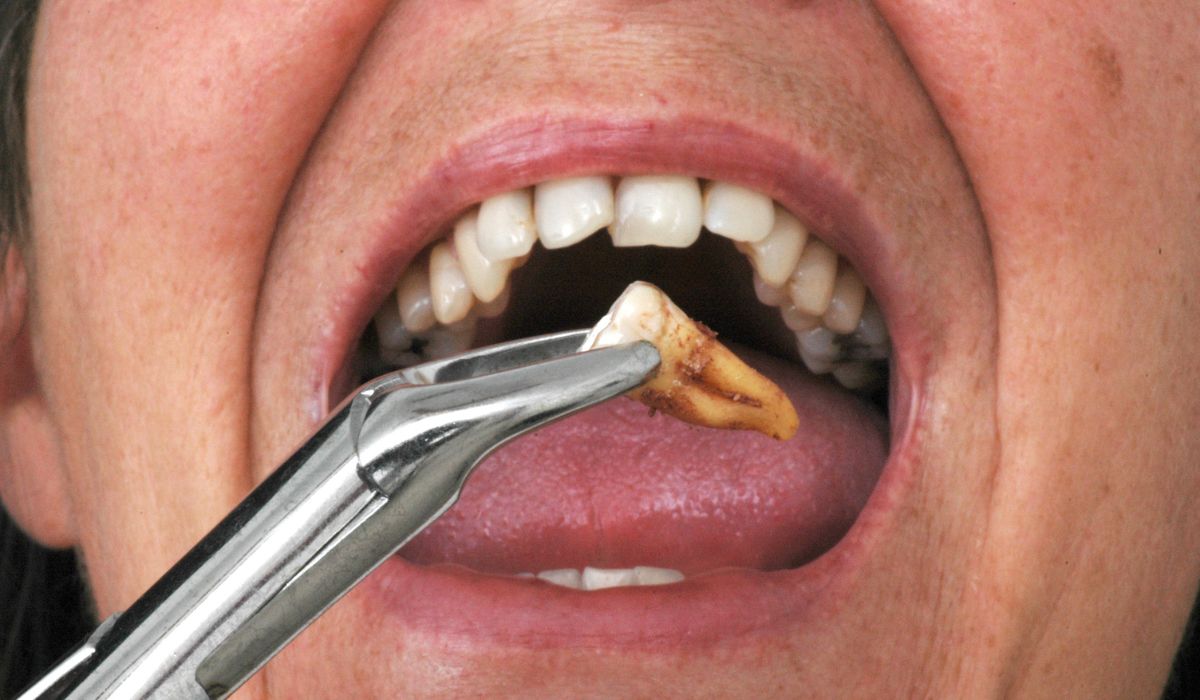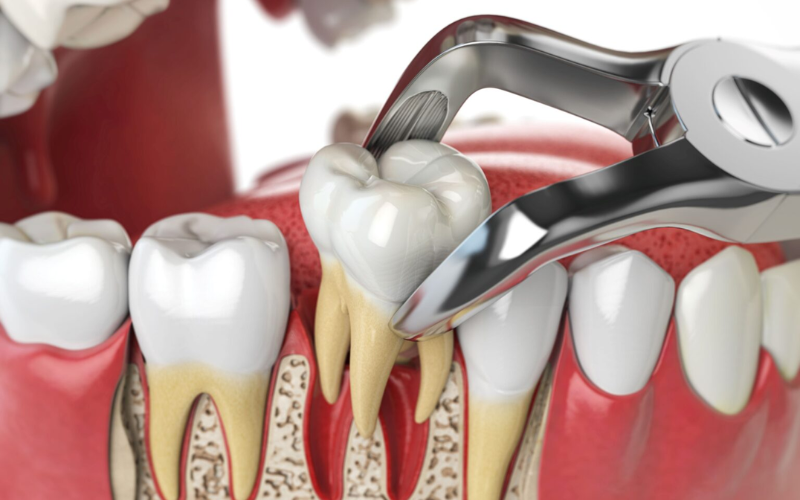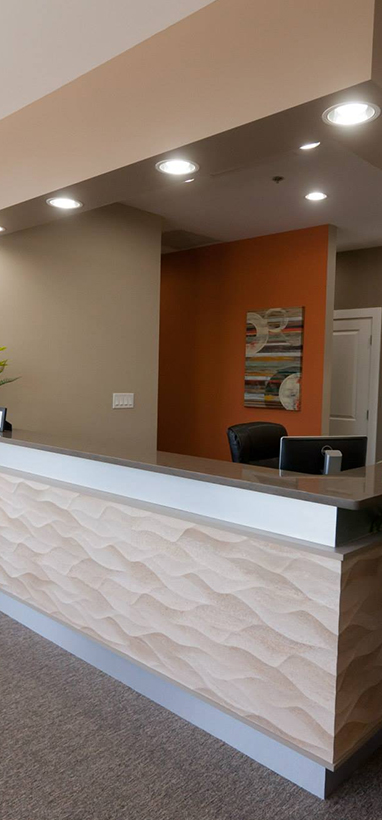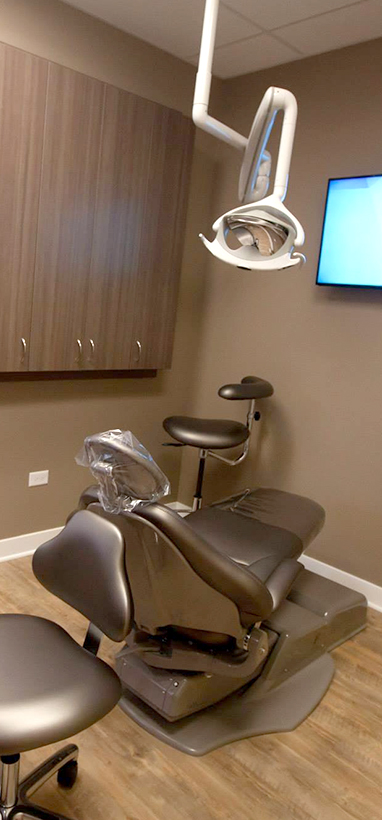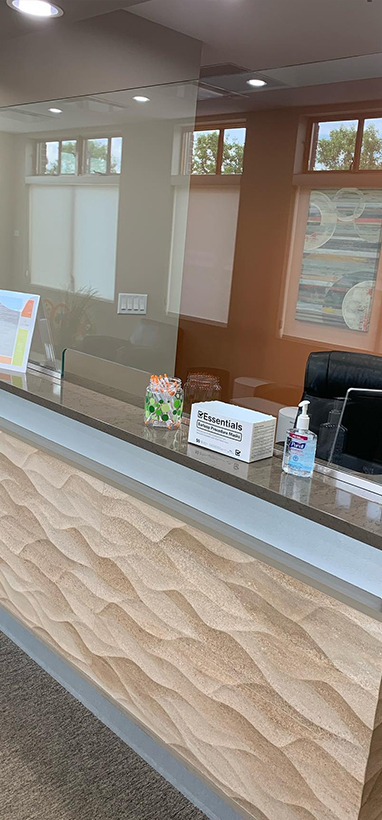1516 Legacy Cir, Naperville, IL 60563
Does a tooth extraction affect another tooth?
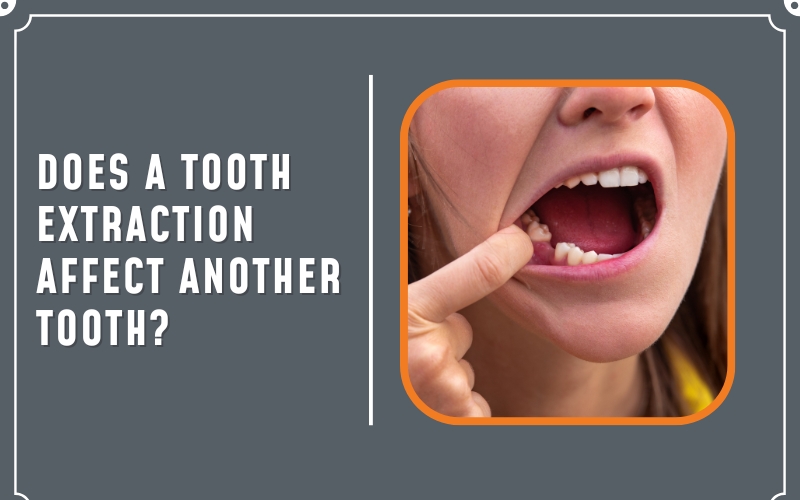
Have you ever wondered how pulling a tooth might affect the rest of your mouth? Many people do not realize that tooth extraction can have far-reaching consequences beyond just removing the problem tooth. Understanding these potential effects is crucial for maintaining your long-term oral health.
When a tooth is extracted, it does not just leave a gap. It can also lead to shifts in your bite, changes in teeth alignment, and even bone loss. This blog will discuss what happens during tooth extraction, the short- and long-term implications on neighboring teeth, and when to consult a dentist.
What Happens During a Tooth Extraction?
A tooth extraction is a routine dental surgery in which the tooth is taken out of the bone socket. Here is how the process works:
- Consultation: The dentist examines your teeth and takes X-rays. This helps them understand the tooth’s position and condition.
- Preparation: If needed, the dentist administers local anesthesia to numb the area. Sedation may also be offered for more complex extractions.
- Extraction: Using specialized tools, the dentist loosens the tooth from its socket. They then carefully remove the tooth, ensuring minimal damage to surrounding tissues.
- Post-Extraction Care: The dentist places gauze over the extraction site to control bleeding. They may also prescribe painkillers or antibiotics to prevent infection.
Tooth extraction may be necessary for several reasons. Common causes include severe tooth decay, damage beyond repair, or gum disease. In some cases, teeth may need to be removed to alleviate overcrowding, especially before orthodontic treatment. Impacted teeth, particularly wisdom teeth, are often extracted to prevent future complications.
While the procedure is routine, it is important to understand that removing a tooth is not without consequences. The effects on the remaining teeth and overall oral health can be significant.
Immediate Effects on Surrounding Teeth
When a tooth is removed, the changes in your mouth start almost immediately. Here are some of the most notable effects:
- Shift in Teeth Alignment:
The space left by the extracted tooth can cause nearby teeth to shift. Teeth naturally move towards gaps in the dental arch. This can lead to misalignment, which may affect your smile and bite.
Over time, teeth may become crooked, and spaces may develop between them. Additionally, this movement may make it more difficult to adequately clean your teeth, which raises your risk of cavities and gum disease.
- Changes in Bite:
Removing a tooth can also disrupt your bite. As your mouth closes, your bite is the arrangement of your upper and lower teeth. When a tooth is missing, the balance of forces in your bite changes. This can lead to uneven pressure on the remaining teeth.
Over time, this imbalance can cause discomfort, jaw pain, and even temporomandibular joint (TMJ) disorders. In some cases, the opposing tooth may start to overgrow into the empty space, further complicating your bite.
- Bone Resorption:
One of the lesser-known effects of tooth extraction is bone resorption. Your teeth’s roots stimulate the jawbone, maintaining its strength and vitality.
The extraction site’s bone starts to deteriorate after a tooth is extracted because it is not stimulated. This process is known as bone resorption. As the bone shrinks, it can lead to changes in your facial structure, making your cheeks appear sunken.
Bone loss can also affect neighboring teeth, making them less stable and more prone to shifting. In severe cases, bone resorption can complicate future dental procedures, such as implants.
Long-Term Impacts of Tooth Extraction
The effects of a tooth extraction can extend far beyond the immediate aftermath, affecting your oral health for years to come.
- Impact on Oral Health:
Serious problems with oral health might result from tooth loss. Neighboring teeth become more difficult to clean as they move. Because of this, tooth decay and gum disease are more common. In addition to acting as food and bacterial traps, the spaces left by missing teeth can exacerbate oral health issues.
The neighboring teeth may begin to deteriorate once a tooth is lost. This can result in additional extractions and further oral health complications.
- Potential for Tooth Replacement:
Maintaining dental health and usefulness requires replacing a lost tooth. Dental implants are a popular option, providing a permanent solution that mimics the natural tooth.
However, implants require sufficient bone density for placement. If bone resorption has occurred, bone grafting may be necessary before an implant can be placed. Bridges are another option, but they rely on the adjacent teeth for support, which can weaken those teeth over time.
Dentures are a more affordable solution, but they may not provide the same level of comfort or stability as implants. Each replacement option has its own impact on neighboring teeth and overall oral health.
- Preventive Measures:
There are steps you can take to minimize the negative effects of a tooth extraction. Orthodontic treatment can help prevent teeth from shifting after an extraction. Regular dental check-ups are essential to monitor your oral health and catch any issues early.
If you are considering or have already had a tooth extraction, discuss replacement options with your dentist as soon as possible. Taking a proactive approach can help you avoid many of the long-term consequences associated with tooth loss.
When to Seek Professional Advice?
Knowing when to seek professional help after a tooth extraction can prevent further complications.
- Signs to Watch For:
After an extraction, watch for symptoms like persistent pain, swelling, or bleeding. These may indicate complications, such as a dry socket or infection. If you notice neighboring teeth becoming loose, shifting, or developing new gaps, it is important to consult your dentist.
Any discomfort in your jaw or changes in your bite should also prompt a visit to the dentist. These could be signs of TMJ disorders or other issues related to the extraction.
- Importance of Follow-Up Care:
Regular follow-up care is crucial after a tooth extraction. Your dentist will monitor your healing process and check for any complications. They can also advise on replacement options to prevent long-term issues.
Consistent dental visits help ensure that your remaining teeth and overall oral health are maintained. Even if you feel fine after the extraction, it is important to attend all scheduled follow-up appointments.
Tooth extraction is more than just a routine dental procedure—it can have lasting effects on your oral health. From shifting teeth and changes in your bite to bone loss and increased risk of decay, the consequences of losing a tooth are significant.
Understanding these potential impacts helps you take proactive steps, such as replacing the missing tooth or seeking orthodontic treatment. Always consult your dentist if you are considering or have recently had a tooth extraction. Their guidance is essential in maintaining a healthy, functional smile for years to come.



